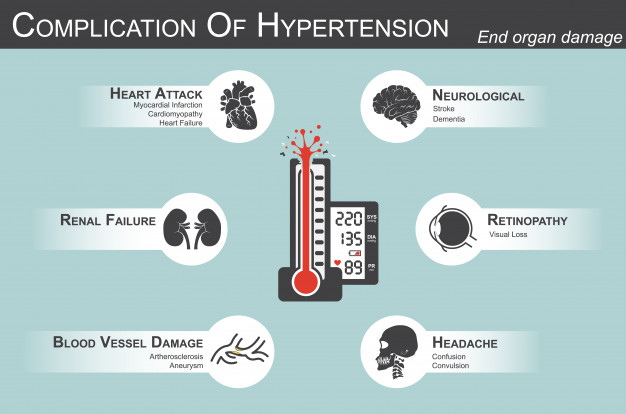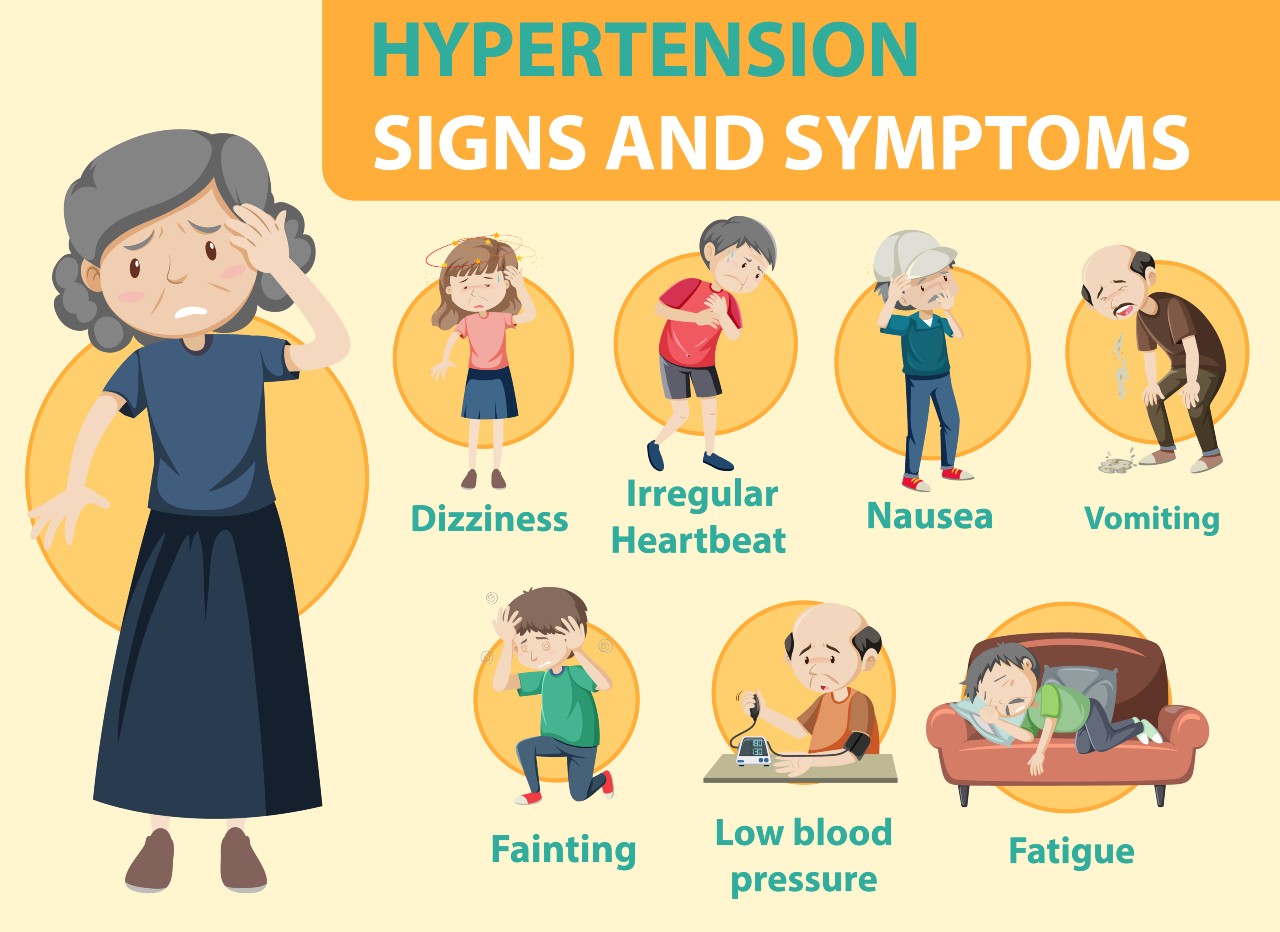Hypertension
- Home
- Hypertension



High blood pressure (also called hypertension) should be under 120/80 to be considered normal. Higher levels may lead to other problems, such as stroke or kidney disease. High blood pressure is treated with lifestyle changes and medications.
Hypertension, or high blood pressure, is dangerous because it can lead to strokes, heart attacks, heart failure, or kidney disease. The goal of hypertension treatment is to lower harmful high pressures and protect important organs, such as the brain, heart, and kidneys. In studies, treatment for hypertension has been associated with reductions in stroke (reduced an average of 35 percent to 40 percent), heart attack (20 percent to 25 percent), and heart failure (more than 50 percent).
The Joint National Committee on Prevention, Detection, Evaluation, and Treatment of High Blood Pressure has classified “normal blood pressure” as less than 120/80 mmHg, “pre-hypertension” as 120-139/80-89 mmHg, and “hypertension” as greater than 140/90 mmHg. All patients with blood pressure readings greater than 120/80 should be encouraged to make lifestyle modifications. Treatment with medicine is recommended to lower blood pressure to less than 140/90 mmHg. For patients who have diabetes, or chronic kidney disease, the recommended blood pressure is less than 130/80 mmHg.
Treatment of hypertension involves lifestyle changes and drug therapy.
Modifiable risk factors include unhealthy diets (excessive salt consumption, a diet high in saturated fat and trans fats, low intake of fruits and vegetables), physical inactivity, consumption of tobacco and alcohol, and being overweight or obese.
Non-modifiable risk factors include a family history of hypertension, age over 65 years and co-existing diseases such as diabetes or kidney disease.
Hypertension is called a "silent killer". Most people with hypertension are unaware of the problem because it may have no warning signs or symptoms. For this reason, it is essential that blood pressure is measured regularly.
When symptoms do occur, they can include early morning headaches, nosebleeds, irregular heart rhythms, vision changes, and buzzing in the ears. Severe hypertension can cause fatigue, nausea, vomiting, confusion, anxiety, chest pain, and muscle tremors.
The only way to detect hypertension is to have a health professional measure blood pressure. Having blood pressure measured is quick and painless. Although individuals can measure their own blood pressure using automated devices, an evaluation by a health professional is important for assessment of risk and associated conditions.
Reducing hypertension prevents heart attack, stroke, and kidney damage, as well as other health problems.